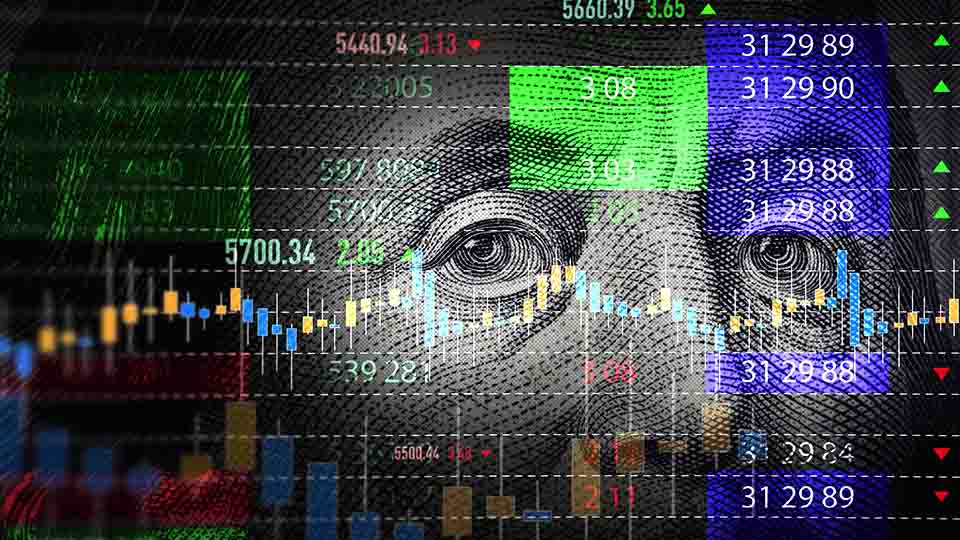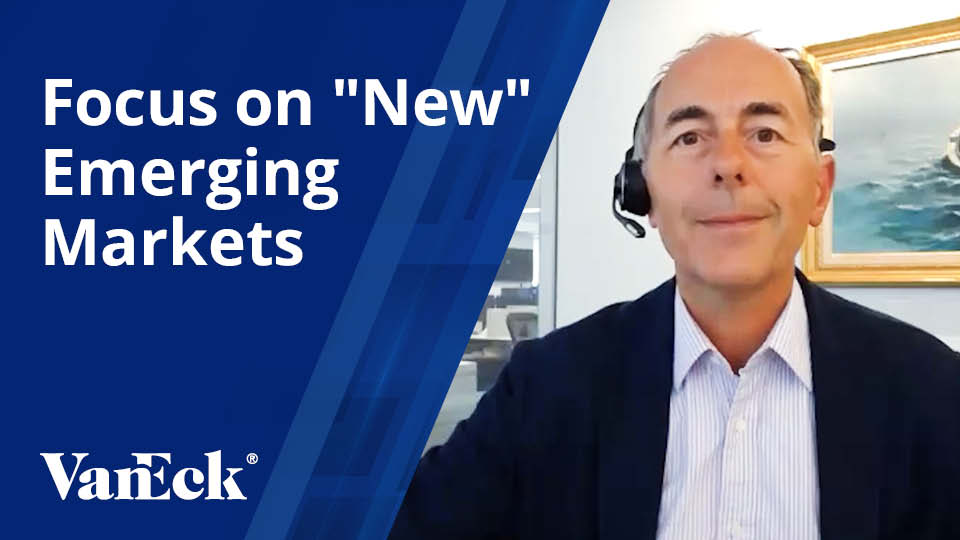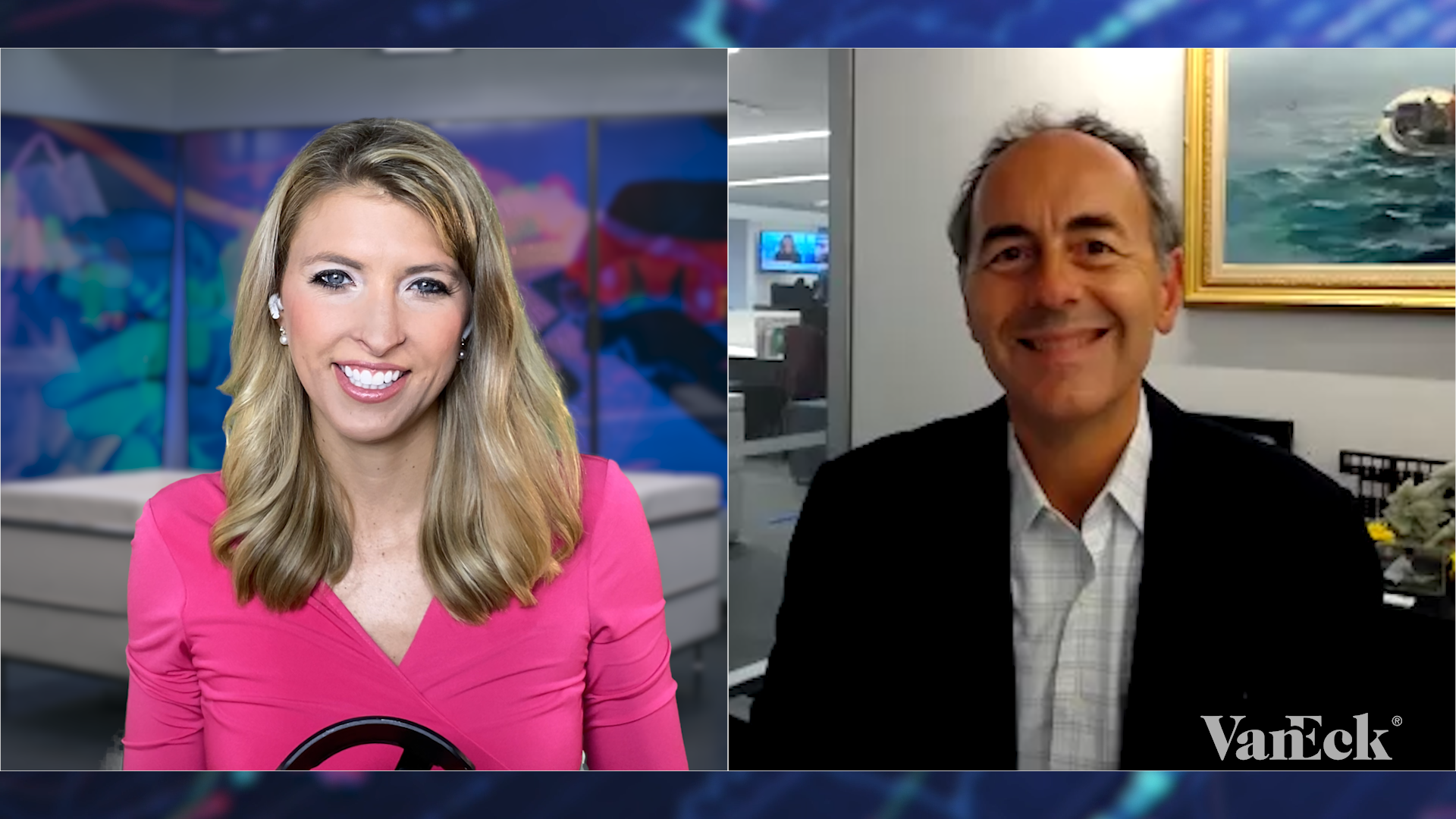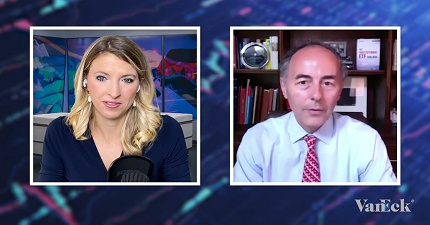Keeping Eyes on Bitcoin, Global Growth and Inflation
08 March 2021
Watch Time 7:14
Jenna Dagenhart: Hello, and thanks for watching this outlook interview with VanEck CEO, Jan van Eck. Jan, great to have you with us. All eyes seem to be on bitcoin these days after bitcoin crossed the $50,000 mark for the first time. What do you think is driving this rally? And is it sustainable?
Jan van Eck: Yeah, Jenna, I think there are two things that are really making this a different bull market for crypto than 2017. First of all, you can earn interest on bitcoin. There are things happening in that space that people are just not aware of. So if just for custodying bitcoin with some of these providers, you can earn 6-10% annual interest, that's going to attract a lot of capital. And it's something that I don't think people are aware of, and more money will go into the space.
Jan van Eck: And then secondly, the infrastructure that will allow for the building of what I call a “Crypto Wall Street" has made a lot of progress in the last three years—so the ability for these digital assets, which is really just software, to do financial contracts like options and futures. Not only is the logic working, which it was theoretical in 2017, but they have agreed upon data sources, which really matters. If you're doing an option to buy oil at $50, you want to know that that $50 is going to be a price that everyone can agree on and doesn't get manipulated. So that fact you can earn interest on bitcoin, number one, and the further development of this Crypto Wall Street, I think, is we're in a different level of acceptance, and you see a lot of individual investors and institutions now buying bitcoin for their portfolios that you didn't see in 2017.
Jenna Dagenhart: Speaking of acceptance in the ETF space, Canada just launched its first Bitcoin fund. A major step forward for North America and VanEck's proposed bitcoin ETF is currently being reviewed by the SEC. Why do you think the ETF wrapper makes sense for bitcoin?
Jan van Eck: It's just really a convenience factor. It's sort of like gold bullion ETFs. You don't have to worry about the custody yourself. You don't have to have a hardware wallet or run a node on your PC. And then also just the tax reporting. It's tax season, people are getting all those reports from their broker dealers. It's a lot easier to not have one more report built in. There's also some of the regulatory advantages of supervision by the SEC and trading on a more developed infrastructure. The crypto exchanges have come a long way over the last several years, but still I think, NASDAQ, New York Stock Exchange, the market making infrastructure is just a little bit more reliable from a unified pricing perspective.
Jenna Dagenhart: I'm glad you bring that up because you've emphasized that bitcoin is software. People also liken holding bitcoin to holding cash or gold. As a long-time leader in the precious metals space, how do you think investors should be thinking about bitcoin?
Jan van Eck: Yeah, we've been saying since 2017, that bitcoin is going to be sort of one of those hard assets or stores of value that you want to have in your portfolio. Silver, historically, has kind of acted as the poor man's gold. So, there's precedent for people wanting that kind of asset in your portfolio, but supplementing gold with something else. I definitely think Bitcoin is now earning that status. It's the fixed supply. And I do talk about it as software, because I think people need to understand what the risks are around it a little bit before they can commit their own dollars or institutional dollars. It's open-source software—like Linux, that's worked before. And it's very transparent, but just you’ve got to understand how that's working behind the scenes, I think, in order to feel comfortable to understand what the risks are.
Jenna Dagenhart: Not exactly a brick-and-mortar bank.
Jan van Eck: No.
Jenna Dagenhart: And after the worst year for the economy since World War II, what does economic growth look like in 2021, as life hopefully begins to return to normal?
Jan van Eck: What we've been saying is we think the tables are flipped, where 2020 was bad for Main Street, good for Wall Street. I think 2021, the returns from the financial markets are just not going to be exciting. I hate to put a number on it, but I'm thinking single digit returns for high yield debt and equities, which means maybe we've seen the best returns we will this year. The headwinds are higher interest rates.
Jan van Eck: And we said in November that we thought interest rates could go from 1.5-2% on the 10-year, and that's just not great for financial assets. It's not good for bonds, obviously, but it's also not super for growth stocks. And so, I don't think it's catastrophic. I think equities are going to be a fine place to be. You'll have some of those hyper-growth stocks come back to earth, I think. But yeah, it's just lower your expectations for Wall Street for 2021.
Jenna Dagenhart: Finally, Jan, I feel like I can't get through an interview these days without inflation coming up. What are your expectations for inflation? And what do you think the impact will be on commodities?
Jan van Eck: We don't have a house view on inflation, but there's two types, I would say. There's commodity inflation, and then there's kind of real CPI inflation. Commodity inflation is definitely happening. I've said the world economy is super strong. It's why we're seeing higher interest rates, and commodities are booming. And I think, I don't know if you'd call it a super cycle, but they're at seven-year highs. I think that commodity companies are disciplined to not supply too much into the market, so I think higher prices are here to stay across the commodity spectrum. That's why I think investors are rightfully looking at commodity inflation. Look, whether all of this stimulus transmits into higher wage inflation, it's always a tough call. So that's a separate kind of dimension, but I think commodities certainly are benefiting, and will continue to benefit, from all the stimulus that's happening.
Jenna Dagenhart: Well, Jan, always great to have you. Thanks for joining us.
Jan van Eck: Great to see you.
Jenna Dagenhart: And thanks for watching that outlook interview with CEO Jan van Eck. I'm Jenna Dagenhart with Asset TV. To receive regular updates from VanEck's experts, please visit vaneck.com/ucits/subscribe.








